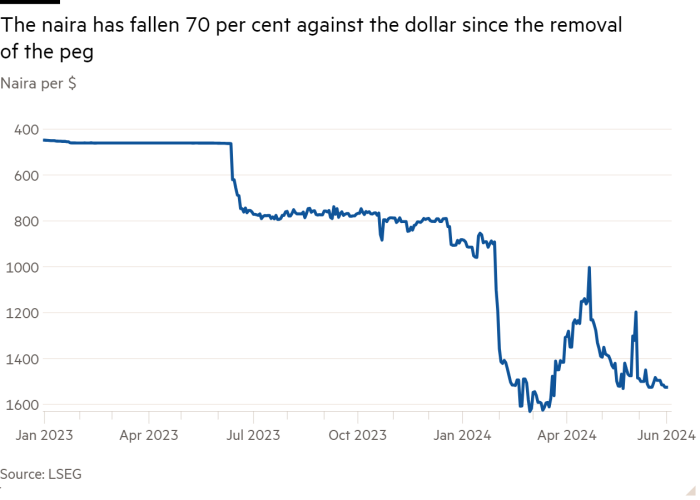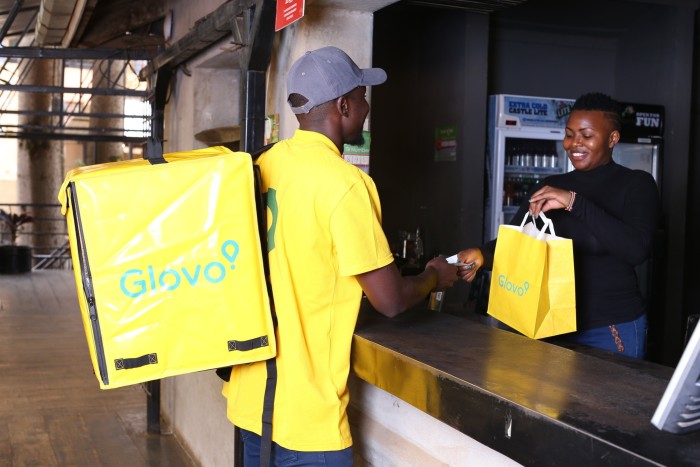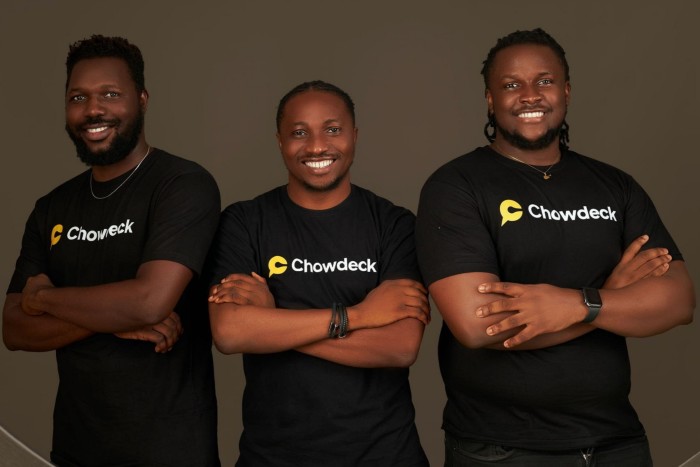Nigeria’s food delivery startups are attracting the attention of international investors who are optimistic about growing demand in Africa’s most populous country for home-delivered restaurant meals, even as rising food inflation bites.
Local market leaders Chowdeck, FoodCourt and Heyfood, each backed by start-up incubator Y Combinator, and Spain’s Glovo, are vying for market share, serving a demographic where the average family spends around 60 percent of its income on food.
The Nigeria market is expected to more than double to $2.4 billion over the next eight years, with a compound annual growth rate of almost 11 percent, market research group IMARC estimates in a report.
“Africa has huge potential,” Glovo co-founder Sacha Michaud told the Financial Times. “We are seeing rapid growth of our business in Africa and particularly Nigeria,” helped by improved internet speed and reach.
Two-year-old Chowdeck in April unveiled $2.5 million in seed funding from investors including California-based Y Combinator, a backer of Instacart and DoorDash, and the co-founders of Bogotá-based Rappi, the largest online delivery platform in Latin America.
Glovo, owned by listed German group Delivery Hero, raised more than half a billion dollars three years ago, with plans to expand beyond its Spanish roots into Africa. The company has invested more than $100 million to establish itself on the continent. It entered Nigeria in 2021 and operates in six other countries.
The start-ups count on the potential size of the Nigerian market, with its 200 million inhabitants. City dwellers in particular are increasing their internet use as the country, like much of Africa, improves its networks.
However, the economic slump threatens to hamper the industry’s growth prospects as Nigeria experiences its worst cost-of-living crisis in a generation, with inflation at its highest level in three decades at almost 34 percent. Food inflation is at 40.7 percent. The local naira currency has lost about 70 percent of its value against the US dollar after two devaluations in the past year.
Multinational companies that invested in Nigeria, betting on a rising middle class, are withdrawing from the country and the economy has fallen from first place two years ago to third in Africa today.
Bolt Food, the delivery branch of the Estonian taxi service Bolt, closed its doors there last year. The same applied to Jumia, the pioneering e-commerce group listed in New York.
Jumia had “determined at the time that its food delivery business was not suited to the current operating environment and macroeconomic conditions.” At its peak, the company could handle just 19,000 daily orders across 11 countries, according to a person familiar with the business.

Elsewhere, in the US and Europe, the four largest food delivery apps have struggled to sustain a pandemic-induced growth spurt and have collectively lost more than $20 billion since going public, leaving many doubting their potential to turn a profit.
“Food is essential, delivery is not,” said Eghosa Omoigui, a venture capitalist at EchoVC in Lagos. “How big is the target market for food delivery in Nigeria and how fast is it shrinking?”
He pointed to a “direct correlation between those employed and those ordering delivery,” adding that the business is “much harder” to build and even harder to scale.
However, Omoigui emphasized the potential for success, especially if companies perform reliably.

Glovo and Chowdeck are among the startups aiming to improve standards since the early days of the industry, when meals often took hours to arrive or were delivered half-eaten or not at all. Both companies have reduced wait times to approximately 40 minutes.
“Food delivery seems like a necessity and I couldn’t understand why more food delivery companies couldn’t operate in Africa,” Femi Aluko, co-founder of Chowdeck, told the FT. “I kept hearing the same thing: it can’t work in Nigeria because of the traffic, driving habits and unreliable shipping.”
Aluko got the idea to start Chowdeck after he struggled to get quick meals delivered to his home in Lagos during the Covid-19 pandemic.
His company, which launched in January 2022, today makes 20,000 deliveries per day and is looking to expand beyond the eight Nigerian cities where it operates. The startup has branched out into other deliveries, such as medicines and groceries, like its rival Glovo.

Other local players in the industry include FoodCourt, which collects from its own ghost kitchens rather than external outlets. Heyfood is mainly active in the southwestern city of Ibadan and the capital Abuja.
Sendme, backed by Y Combinator, is shipping meat to homes and businesses in Ibadan. The company has temporarily suspended deliveries as it expands its offerings and improves its processes, according to its website.
“One of the problems with companies in emerging markets – and Nigeria certainly qualifies – is that there is so little trust, because reliability is such an important product,” Omoigui said.
“If you know how to be reliable, you will never have a retention problem,” he added. “The hypothesis is that Nigerians, no matter how price sensitive they are, will pay a premium for reliability.”
